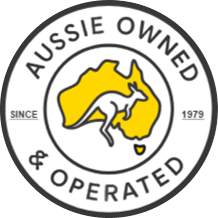- Get Extra
- Individuals
- Business
- Tools
- Tax Courses
- Contact
Landscapers & Gardeners Tax Tips
Monday, 6th March 2023
As a landscaper in Australia, there are a few tax tips that can help you save money and avoid penalties. Here are some simple but effective tips that you should keep in mind:
Claiming your tools and equipment As a landscaper, you may use tools and equipment such as lawnmowers, chainsaws, hedgers, and trimmers. You can claim a deduction for the cost of these items, as well as any repairs and maintenance costs. For example, if you purchase a new lawnmower for $1,000, you can claim a deduction for that amount. If you have to replace the blades on your hedger for $100, you can also claim a deduction for that. Claiming your vehicle expenses If you use your vehicle for business purposes, you can claim a deduction for your expenses. There are two methods for calculating your vehicle expenses: the cents per kilometre method and the logbook method. Under the cents per kilometre method, you can claim up to 5,000 kilometres per year at a rate of 78 cents per kilometre. Under the logbook method, you claim a deduction for your vehicle expenses based on the percentage of business use of your vehicle. To determine this percentage, you need to keep a logbook of all trips made in the vehicle over a 12-week period. You divide the total kilometres driven for business purposes by the total kilometres driven during the logbook period to calculate the percentage of business use. This percentage is then used to determine the deduction you can claim on your vehicle expenses. For example, if your total vehicle expenses for the year were $10,000 and your records indicate that you have used your vehicle 50% for business* purposes you would be able to claim a deduction of $5,000 (50% of $10,000) as a business expense. *In the logbook method, business use is any use of the vehicle that is directly related to your income-earning activities, such as travelling to meetings with clients or suppliers, making deliveries, or driving between different work sites. If a Landscaper or a Gardener drives to work sites as part of their income-earning activities, this would generally be considered business use of the vehicle under the logbook method. This would include driving to different job sites, transporting tools and equipment, and carrying out other work-related tasks. However, any personal use of the vehicle, such as using it to run personal errands during the workday or using it for personal trips outside of work hours, would not be considered business use and cannot be claimed as a deduction. Claiming your work-related travel expenses As a landscaper, you may have to travel to various job sites or meet with clients. You can claim a deduction for your travel expenses, such as meals, accommodation, and transport costs. For example, if you have to stay overnight in a hotel for a job, you can claim a deduction for the cost of the hotel room, as well as any meals or other expenses you incur while you're away. Claiming your home office expenses If part of your administration work is from home, you can claim a deduction for the expenses related to your home office. This includes things like cleaning, utilities, internet, and phone expenses. You can claim a percentage of these expenses that relate to your business use. For example, if you use your home office 50% of the time for your business, you can claim a deduction for 50% of your cleaning, utilities, internet, and phone expenses. Keeping accurate records To claim your tax deductions, you need to keep accurate records of all your income and expenses. This includes keeping a diary for home office purposes as well as keeping receipts, invoices, bank statements, and other documentation related to your business. You should also keep a logbook of your vehicle use if you're using the logbook method for calculating your vehicle expenses. Getting professional advice If you're unsure about your tax obligations or how to claim deductions, it's always a good idea to seek professional advice from a tax professional like ITP Queensland. They can help you navigate complex tax laws and regulations and ensure that you're maximising your deductions while minimizing your tax liabilities.

